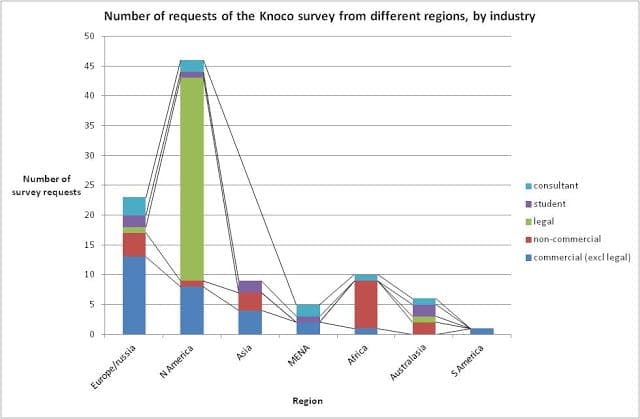
Favorite Here is another post from the archives – an uplifting story of the recognition of the Value of Knowledge from the Great Man himself – Nelson Mandela Image from wikimedia commons The text below is taken from the excellent book “playing the enemy”, by John Carlin – a book
Read More
 Shared by Nick Milton July 30, 2018
Shared by Nick Milton July 30, 2018

Favorite KM and Training are different but complementary. Here’s how. Knowledge management and Training both are concerned with learning, but both are different. Training is focused on learning at an individual level, and KM is focused on learning at team, project, community or organisational scale. Training is learning in preparation
Read More
 Shared by Nick Milton July 27, 2018
Shared by Nick Milton July 27, 2018

Favorite Companies that succeed are those that learn all the time, even when the going is good Success, by DennisM2 on Flickr This is an insight that came to me from 2 directions this week, one from an article in Forbes magazine, and one from a discussion on Toyota The
Read More
 Shared by Nick Milton July 26, 2018
Shared by Nick Milton July 26, 2018

Favorite Here is some more data on the global interest in KM. The question is, how we interpret this data. I am always looking for data on the state of the KM market, as a counter to the people who tell us “KM is dead”, or “KM is all about
Read More
 Shared by Nick Milton July 25, 2018
Shared by Nick Milton July 25, 2018

Favorite If you want a learning organisation, you need an organisation of learners. But what makes a good learner? Learner, by sangeight on Flickr Here’s an article called “Seven Characteristics of Good Learners” by Maryellen Weimer, which addresses just that question. According to Maryellen: Good learners are curious – They
Read More
 Shared by Nick Milton July 24, 2018
Shared by Nick Milton July 24, 2018

Favorite Large businesses can lose $47 million each year due to poor KM, claims a recent report English Currency by Images Money on Flickr That is the claim of the Panopto Workplace Knowledge and Productivity Report, a recent report based on a survey of 1000 US workers Here are some
Read More
 Shared by Nick Milton July 23, 2018
Shared by Nick Milton July 23, 2018

Favorite How far does your knowledge spread in your organisation? Image from wikimedia commons We are used to the idea of the Carbon Footprint – the amount of carbon dioxide released into the atmosphere as a result of your activities – but what about your Knowledge Footprint? This is the
Read More
 Shared by Nick Milton July 20, 2018
Shared by Nick Milton July 20, 2018

Favorite “Who owns a scientisist’s mind” is a really interesting article about the “ownership” of knowledge which raises some deep questions which are fundamental to KM. Image from wikimedia commons The article, written in “physics today” by Douglas O’Reagan, a historian of science and a postdoctoral fellow at MIT, takes
Read More
 Shared by Nick Milton July 19, 2018
Shared by Nick Milton July 19, 2018

Favorite A common question from clients in professional services, legal or consulting firms, which usually operate a strict time-writing regime, is “How do we Timewrite KM”? In an industry where billable hour is king, how do you timewrite, and therefore bill, time spent in Knowledge Management activities such as Peer Assist,
Read More
 Shared by Nick Milton July 18, 2018
Shared by Nick Milton July 18, 2018

Favorite Work gets done because people are accountable. KM also will get done if individuals are given accountability. Work gets done because people are accountable. They are given a job, and they do their job. Where I have seen KM really live for a long time in organisations, it is
Read More
 Shared by Nick Milton July 17, 2018
Shared by Nick Milton July 17, 2018
![]() Shared by Nick Milton July 30, 2018
Shared by Nick Milton July 30, 2018








